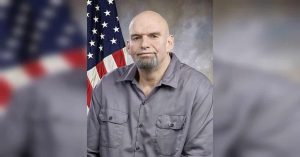Supreme Court Permits Honolulu's Climate Case Against Oil Companies
The U.S. Supreme Court has made headlines by allowing a lawsuit from the city of Honolulu against some of the world’s most prominent oil companies to continue in state court, despite attempts by these corporations to have it dismissed.
The lawsuit seeks to hold Sunoco, Shell, ExxonMobil, BP, and Chevron accountable for the impacts of climate change, marking another significant decision where the court has refused similar dismissals in other states, according to TheHill.com.
Introduction of Climate Change Lawsuit
On Monday, the Supreme Court rejected an appeal from the oil industry to dismiss a lawsuit initiated by Honolulu. The lawsuit aims to address the environmental challenges the city faces due to climate change. The companies targeted by this legal action include Sunoco, Shell, ExxonMobil, BP, and Chevron.
The core of the companies' argument centered around jurisdiction. They contended that the lawsuit should be adjudicated under federal law rather than state law. However, this argument did not stand, as the state Supreme Court had already decided against it, allowing the action to proceed based on allegations of deceptive marketing by the companies. The state court's ruling deviated from what the oil corporations proposed concerning interstate commerce regulations.
It's essential to recognize that this decision by the Supreme Court aligns with its earlier stance where similar pleas were dismissed in various states including Colorado, Maryland, California, Hawaii, and Rhode Island in 2023. Nevertheless, there is a notable exception, as a lawsuit from Baltimore was set aside by the court due to procedural complexities.
Previous Supreme Court Decisions
The pattern of the court’s decisions shows a degree of unpredictability but often manifests a reluctance to outright dismiss such cases. While earlier rulings frequently showed the court siding against environmental regulatory actions during the Biden administration, particularly in matters related to renewable energy requirements and cross-border air pollution laws, this case stands out.
Justice Samuel Alito did not partake in the recent decision, likely attributable to his financial interests in oil companies, which necessitated his recusal.
The Biden administration's stance in this context leaned towards supporting the legal pathway for the claims as it advised the Supreme Court against entertaining the oil companies’ appeals.
Voices from the Debate
Reactions to this development have been varied. Delta Merner, a lead scientist at the Union of Concerned Scientists, emphasized the significance of Honolulu's legal challenge. "The people of Honolulu are demonstrating remarkable leadership in standing up to powerful fossil fuel companies whose disinformation campaigns have directly contributed to the climate harms they now face,” Merner stated.
She further asserted that the efforts of the local populace in Honolulu could set a precedent for communities worldwide. "Their efforts serve as a powerful example for communities around the world,” she said. “This decision is one step in a larger effort to seek accountability and justice.”
Meanwhile, Chevron’s legal representative, Ted Boutrous, expressed a starkly contrasting view. “Chevron will continue to defend against meritless state law climate litigation, which clashes with basic constitutional principles,” Boutrous contended.
Broader Implications of Legal Action
For Chevron, as well as other oil companies involved, this lawsuit challenges traditional perspectives on energy policy. Boutrous argued that such litigation “undermines sound energy policy, and is factually meritless.”
These cases highlight a growing trend where local governments seek remedies through state courts against major fossil fuel companies. Such legal battles underscore a shift towards accountability for environmental damages, particularly where deceptions in marketing are alleged.
Further complicating this discourse are the varying judicial interpretations among different state and federal courts, leading to nuanced rulings.
Future of State Court Climate Claims
The larger context of this legal process hints at a sustained judicial exploration of who can be held liable for climate change and environmental degradation.
With the Supreme Court allowing Honolulu’s lawsuit to proceed, this case joins a list of similar actions nationwide seeking to hold fossil fuel giants accountable for their environmental footprints.
As the legal battle unfolds, all eyes will be on how the arguments are framed and defended, which may inform future cases of a similar nature.




